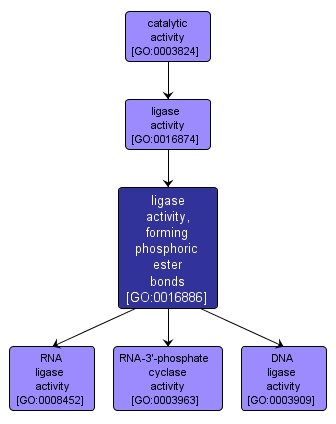GO TERM SUMMARY
|
| Name: |
ligase activity, forming phosphoric ester bonds |
| Acc: |
GO:0016886 |
| Aspect: |
Molecular Function |
| Desc: |
Catalysis of the ligation of two substances via a phosphoric ester bond with concomitant breakage of a diphosphate linkage, usually in a nucleoside triphosphate. |
|

|
INTERACTIVE GO GRAPH
|














